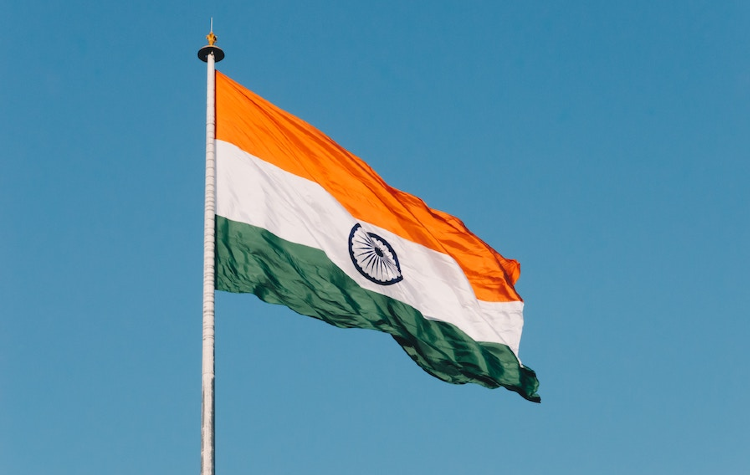(Bangkok/Kathmandu, 6 August 2021) – The abrogation of Article 370 of the Indian Constitution and limiting the statehood of Jammu & Kashmir into centrally administered territories two years ago has further deteriorated the human rights situation in Kashmir, said the Asian Forum for Human Rights and Development (FORUM-ASIA) in a statement today.
In 2019, the Government of India unilaterally and arbitrarily revoked the special status and autonomy from the state of Jammu and Kashmir provided under the Indian Constitution, and divided the state into two centrally-administered ‘Union Territories.’[1]
Immediately after the revocation, the Union Government invoked curfews, and placed several prominent human rights activists and political leaders under house arrest. The government also imposed one of the longest internet shutdowns[2] in Jammu and Kashmir, restored after 18 months only after a long battle in the Supreme Court.[3]
‘The Government of India should restore the special status under Article 370 of the Indian Constitution immediately and adopt remedial measures to ensure fundamental freedoms and the restoration of human rights, civil liberties, peace and security in Jammu and Kashmir. The Government of India should also prioritise a long-term political solution in consultation with all stakeholders in conformity with international human rights norms and the Indian Constitution,’ said Shamini Darshni Kaliemuthu, Executive Director of FORUM-ASIA.
Since the abrogation of the special status, the erstwhile state of Jammu and Kashmir witnessed an increased crackdown on human rights defenders including journalists. Judicial harassment, raids, intimidations and threats[4] were aimed at human rights defenders who continued to document and highlight human rights violations by police and security forces.
Since 2019, over 2,300 people have been charged under the Unlawful Activities (Prevention) Act (UAPA), and 954 people under the Public Safety Act (PSA).[5] Of these, 46 per cent of those booked under UAPA and about 30 per cent of those detained under the PSA are still reported to be imprisoned.
Despite promises of prosperity from the Indian government, there has been no positive development in the conflict-ridden state of Jammu and Kashmir in the past two years. Jammu and Kashmir continue to be one of the most militarised areas in the world. Deployment of military and para-military forces has only increased after 5 August 2019, when the Indian government enacted a law to divide the state into two union territories, thereby, further threatening the fundamental freedoms of the people of Kashmir.
‘Severe and prolonged restrictions on communication, arbitrary mass detentions of political leaders, denial of freedom of expression and access to information, targeting and reprisals against human rights defenders, as well as enactment of new laws including new Domicile Rules have further deteriorated human rights in Jammu and Kashmir. We urge the Government of India to take immediate steps to create an enabling environment for peaceful dialogue and the protection of human rights in Jammu and Kashmir,’ said Shamini.
The Domicile Rules, introduced last year, enabled non-Kashmiris to obtain permanent residency and jobs in the region.
FORUM-ASIA reiterates and emphasises the call to the UN Human Rights Council to establish an independent international investigative mechanism into past and ongoing crimes under international law and human rights violations by all parties in Kashmir, as recommended by the UN High Commissioner for Human Rights in 2018.[6]
FORUM-ASIA further calls on the UN High Commissioner for Human Rights to continue to monitor and regularly report on the situation in Jammu and Kashmir, and also call on the governments of India and Pakistan to provide unconditional access to the Office of the UN High Commissioner for Human Rights (OHCHR) and other human rights mechanisms to Jammu and Kashmir.
Background
The erstwhile princely state of Jammu and Kashmir joined India in 1947 through the ‘Instrument of Accession’ signed by the then ruler of Jammu and Kashmir. In 1950, Jammu and Kashmir were granted the special status under Article 370 of India’s Constitution, which guaranteed autonomy to the Muslim-majority state by having a separate constitution and the right to formulate its own laws. After the abrogation of Article 370 and re-organisation of the state into two union territories, the autonomy of the state has been revoked and the state is being ruled by the Government of India directly through a Lieutenant-Governor, which limited and restricted the powers of the state of Jammu and Kashmir.
[1] https://www.bbc.com/news/world-asia-india-49234708
[2] https://internetshutdowns.in
[3] https://indianexpress.com/article/india/jk-4g-internet-mobile-timeline-7176408/
[5] https://indianexpress.com/article/india/2300-booked-under-uapa-in-jk-since-2019-nearly-half-still-in-jail-7438806/
[6] https://www.ohchr.org/EN/NewsEvents/Pages/DisplayNews.aspx?LangID=E&NewsID=23198
***
For a PDF version of this statement, click here
For further information, please contact:
- South Asia Programme, FORUM-ASIA, [email protected]
For media inquiries, please contact:
- Communication and Media Programme, FORUM-ASIA, [email protected]




